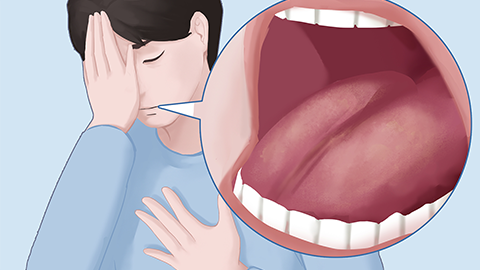What causes bipolar disorder?
Bipolar disorder may be caused by genetic factors, neurotransmitter imbalances, excessive psychological stress, sleep disorders, abnormal brain structure, and other factors. If abnormalities occur, timely medical attention is recommended. Detailed analysis is as follows:

1. Genetic factors: Individuals with a family history of bipolar disorder may have an increased risk of developing the condition due to genetic predisposition. It is recommended to regularly monitor emotional status and promptly intervene when abnormalities occur in order to reduce the likelihood of onset.
2. Neurotransmitter imbalance: Abnormal secretion of neurotransmitters in the brain, such as serotonin and dopamine, can affect emotional regulation and easily trigger bipolar disorder. Maintaining a regular routine, avoiding staying up late, and reducing factors that cause neurotransmitter dysregulation are recommended.
3. Excessive psychological stress: Long-term exposure to high-stress situations, such as heavy academic workload or family conflicts, can lead to emotional dysregulation and trigger bipolar disorder, often accompanied by significant mood swings, loss of interest, and reduced energy. Treatment primarily involves following medical advice for psychological counseling, and if necessary, using medications such as lithium carbonate sustained-release tablets, sodium valproate sustained-release tablets, or quetiapine tablets as adjunctive therapy.
4. Sleep disorders: Chronic insomnia or disrupted sleep patterns can affect neuroendocrine function and trigger bipolar disorder, often accompanied by difficulty falling asleep, early morning awakening, and irritability. Doctors generally recommend treatment with medications such as zopiclone tablets, estazolam tablets, or melatonin granules, along with adjusting sleep habits and creating a good sleep environment.
5. Abnormal brain structure: Structural or functional abnormalities in brain regions such as the prefrontal cortex and hippocampus can affect emotional regulation mechanisms and trigger bipolar disorder, often accompanied by cognitive decline, extreme mood fluctuations, and impaired social functioning, with more severe symptoms. Treatment should follow medical advice to use medications such as lamotrigine tablets, olanzapine tablets, or aripiprazole tablets, combined with long-term psychotherapy and social function rehabilitation training.
In daily life, maintaining a positive mindset, learning to manage stress, avoiding negative stimuli, and establishing a regular routine are recommended.






